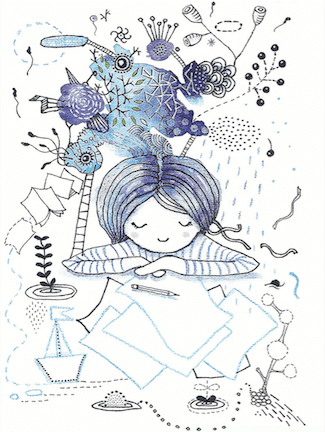Scientists agree that sleep inspires creative problem-solving. The question is, how?
 Researchers from Cardiff University in Wales have suggested that both REM and non-REM sleep work together to make creative connections, according to a May 15 article by Ed Yong in The Atlantic.
Researchers from Cardiff University in Wales have suggested that both REM and non-REM sleep work together to make creative connections, according to a May 15 article by Ed Yong in The Atlantic.
In the first wave of sleep, people enter a light phase and then the heavier slumber of non-REM sleep. During this time, the brain replays memories. It’s also a time when the brain pulls generalities from specifics, researchers say. Part of the new theory states that the brain’s hippocampus, which captures memories of events and places, and the neocortex, the outer layer of the brain where memories of facts, ideas and concepts are stored, work together to replay memories that have related themes.
During REM sleep, a chemical called acetylcholine floods the brain and disrupts the connection between the hippocampus and neocortex, “placing both in an especially flexible state, where connections between neurons can be more easily formed, strengthened or weakened,” Yong writes.
As the brain goes through 90-minute cycles of REM and non-REM sleep throughout the night, the hippocampus and the neocortex sync and then separate repeatedly. “An analogy would be two researchers who initially work on the same problem together, then go away and each think about it separately, then come back together again to work on it further,” researcher Penny Lewis writes in the June issue of Trends in Cognitive Sciences.
“The obvious implication is that if you’re working on a difficult problem, allow yourself enough nights of sleep,” Lewis says. “Particularly if you’re trying to work on something that requires thinking outside the box, maybe don’t do it in too much of a rush.”




 Researchers from Cardiff University in Wales have suggested that both REM and non-REM sleep work together to make creative connections, according to a May 15 article by Ed Yong in The Atlantic.
Researchers from Cardiff University in Wales have suggested that both REM and non-REM sleep work together to make creative connections, according to a May 15 article by Ed Yong in The Atlantic.